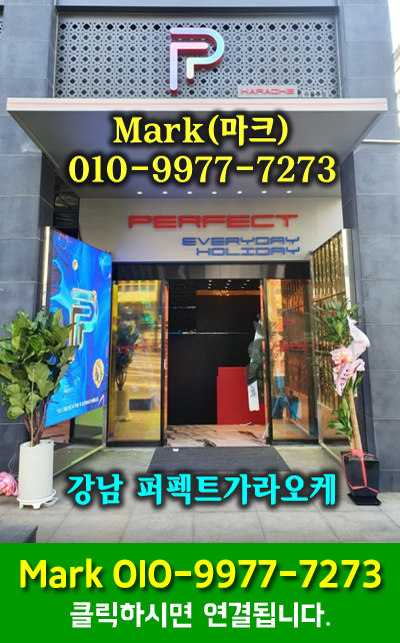Little Known Ways To ADHD Medication List
컨텐츠 정보
- 8 조회
-
목록
본문
Here's an extensive ADHD medication list that includes stimulants, non stimulant adhd medication-stimulants, and particular factors to be considered. This article will review the various ADHD medications as well as their adverse effects, precautions and interactions with other medications. Below is the list of the most frequently prescribed drugs. Visit the American Academy of Pediatrics' official website to know more about ADHD medications. It is also beneficial to know how to use the ADHD medication list and what to look for before you decide to take one.
Stimulants
There are many types of ADHD medication. The most well-known is one that is a stimulant. These medications have the highest success rate however they also come with risks, like negative side effects and the potential for abuse. Non-stimulants take a long time to treat ADHD symptoms. These drugs help improve concentration and impulse control however, they must be taken regularly and results may take several weeks.
Unfortunately, misuse of prescription stimulants can cause substance abuse disorder and in some cases addiction. Tolerance can result from long-term use of stimulants, which means that people need to take larger doses and more often. The continued use of these drugs can lead to substance abuse issues that can be severe and can be fatal. Talk to your doctor if you suspect that your child is taking stimulants in a wrong way.
Non-stimulants include atypical antidepressants along with certain blood pressure medication, and Strattera. These drugs are utilized to treat ADHD when stimulants fail or have caused undesirable side effects. Stimulants can make anxiety worse, so your child should not use them if it is accompanied by anxiety. There are many ADHD alternative medications. A typical non-stimulant is Intuniv, a non-stimulant. It assists children aged 6-12 with a wide range of symptoms, like hyperactivity, impulsivity, and hyperactivity.
Patients with a history of addiction to stimulants should never be given stimulants as they are less effective. The patient's weight, age, sensitivity and tolerance to stimulants will determine the amount. Additionally extended-release stimulants, best adhd medication for adults they should be taken in conjunction with meals. Extended-release capsules that contain beads are suitable for children who have trouble swallowing. Non-stimulants may be used if stimulants are not effective or cause adverse effects.
Antidepressants
While originally designed for other conditions , and have since proved effective for ADHD, antidepressants are also effective in treating ADHD. They can boost concentration and mood, and are beneficial for children with ADHD. There are a number of antidepressants available on the market, including atomoxetine (Strattera), wellbutrin ER, and guanfacides. These medicines require patience prior to beginning treatment. Certain medications can cause adverse effects that aren't pleasant, while others might not be appropriate for every child.
Antidepressants can be used to alleviate symptoms like depression and anxiety. They may also be helpful for people with bulimia or chronic pain. Although antidepressants may not be beneficial for all people however they can be efficient when they are combined with the support of family members and talk therapy. Antidepressants can take several weeks before they begin working. However, you will notice improvements in your sleep, appetite and mood. Talk to your doctor when you are ready to begin taking antidepressants. Discuss the possible side effects and if it's worth the risk.
The FDA has approved the long-acting clonidine and guanfacine as treatment options for ADHD. They have been used to treat high blood pressure and increase patience, decrease impulsivity and improve task-oriented behavior. They can also be used in combination with stimulants like amphetamines and methylphenidate. Nonstimulants should not be used to treat ADHD. However, they can improve mental functioning as well as behavior.
If a person is prescribed a psychostimulant to treat ADHD, he or she must be aware of the possible adverse effects of the medication. Find out how often to take the medication and how often to take it, and what ingredients to avoid. It can be difficult to determine the appropriate dosage for each individual. The best adhd medication for adults with anxiety dose will differ from one person to the next. Begin with the lowest dose and gradually increase it as time passes.
Behavioral therapy
A well-planned treatment plan should consist of continuous monitoring of ADHD medication and treatment for behavioral issues related to ADHD. If necessary, changes in medication are recommended. These suggestions are provided by the American Academy of Pediatrics. ADHD impacts the ability to sit still, be attentive and interact with peers and family members. These children are frequently disruptive in their behavior and require behavioral therapy to help reduce their symptoms. This therapy should be initiated as soon as the diagnosis is established.
Finding the correct medication requires close cooperation with your pediatrician. Your doctor will ask for ratings on your behavior and will ask teachers to monitor your child’s progress. They will also monitor vital signs and watch for any possible side effects. Certain conditions can interfere with the effectiveness of stimulants. These include congenital heart disease. Additionally, more than half of children with tic disorders also have ADHD.
Strattera as well as atypical antidepressants and certain blood pressure medication are all non-stimulant drugs. These medications can sometimes be utilized in conjunction with behavioral therapy for ADHD. The practice of behavioral education is a preferred treatment option for children younger than six years old. A behavioral intervention in the classroom can be beneficial for children and teenagers from as young as 12 years old. older. These medications are not recommended for children under three years of age.
Behavioral therapy for ADHD can help your child improve social skills and develop appropriate behaviors. ADHD treatments teach children new skills to assist them in managing adhd without medication and ADHD medication list coping with stress, increase their motivation and persevere in reaching their goals. There are a variety of licensed therapists that are part of the BetterHelp network. BetterHelp could earn commissions if you decide to see an therapist through their service. You can locate an accredited therapist by visiting BetterHelp's website and calling an area health care provider.
Long-acting formulations
While ADHD medications come in both short-acting and long-acting forms, there are some differences between the two. Short-acting formulas are used for dosage titration and could make comorbidities worse. For adolescents and children, long-acting formulations are recommended. Long-acting formulations are advised for children and adolescents since they are able to provide compliance and cost-benefit analysis.
These ADHD medications are stimulants, that affect brain chemicals, such as dopamine and norepinephrine. However the effects on the individual will differ. Your behavioral health professional will work closely to determine the right medication for you. For instance, long-acting formulas lower the risk of dependence and abuse. These medicines are also more effective for children and adults.
Long-acting adhd sleep medication medications are more effective and easy to adjust dosages. Long-acting formulas allow patients adhere to the medication for a longer period of time. The formulations with a longer-acting effect have the ability to combat the most severe symptoms of ADHD. These may be more efficient than immediate-acting formulas but it is essential to take into consideration your individual preferences and needs when selecting the most effective ADHD medication.
Pediatricians are leading the way by using long-acting natural adhd medication medications. Both adults and children are often prescribed medications that act long. In the beginning, long-acting medications make up nearly half of all ADHD prescriptions. In the case of children these medications have been approved for use by physicians. Long-acting ADHD medications are more well-liked among children than for adults.
Side effects
While some children do not suffer from side effects, others might experience minor, temporary ones. Side effects of ADHD medication can vary based on the child's response and the individual. If you experience adverse reactions speak to your doctor and think about switching your medication. Some children may also have to take supplements in order to counteract weight loss. However, most children experience minimal side effects. Here are the most frequently reported adverse effects associated with ADHD medication.
Be aware of any side effects and possible complications if you are taking ADHD medication for your child. These side effects can be managed by taking it in small doses. Based on the degree and duration of the side effects, you may require the medication for a few weeks or even months. You must also keep an eye on any changes in your child's mood or behavior when taking the medication. Discuss the potential risks of the medication with your child's doctor and his or her medical history. Also, you can learn about adverse effects and be sure to inform your doctor.
In some cases your child's ADHD medication could cause the effect of a rebound. This occurs when the medication is beginning to wear down quickly and ADHD medication list stops the brain's receptors too soon. You can decrease the dosage by about half an hour before the rebound effects start to manifest. Rebound effects can indicate that your dosage of medication should be altered or that you may need to change medications. You should also discuss the possible adverse effects of ADHD medication with your doctor.
ADHD medication can cause negative side effects for adhd medication some children, regardless the effectiveness of the medication. ADHD medication may have resulted in negative effects for certain children. It's difficult to break the addiction. Moreover, many of the children were dependent on drugs for a long time and it was difficult for doctors to stop their addictions. The Drake Institute of Neurophysical Medicine, (DINM), aims to reduce ADHD adverse effects by integrating neuroscience, psychology, and medical. These methods have proven to be successful in clinical trials with more than 80 percent.
Stimulants
There are many types of ADHD medication. The most well-known is one that is a stimulant. These medications have the highest success rate however they also come with risks, like negative side effects and the potential for abuse. Non-stimulants take a long time to treat ADHD symptoms. These drugs help improve concentration and impulse control however, they must be taken regularly and results may take several weeks.
Unfortunately, misuse of prescription stimulants can cause substance abuse disorder and in some cases addiction. Tolerance can result from long-term use of stimulants, which means that people need to take larger doses and more often. The continued use of these drugs can lead to substance abuse issues that can be severe and can be fatal. Talk to your doctor if you suspect that your child is taking stimulants in a wrong way.
Non-stimulants include atypical antidepressants along with certain blood pressure medication, and Strattera. These drugs are utilized to treat ADHD when stimulants fail or have caused undesirable side effects. Stimulants can make anxiety worse, so your child should not use them if it is accompanied by anxiety. There are many ADHD alternative medications. A typical non-stimulant is Intuniv, a non-stimulant. It assists children aged 6-12 with a wide range of symptoms, like hyperactivity, impulsivity, and hyperactivity.
Patients with a history of addiction to stimulants should never be given stimulants as they are less effective. The patient's weight, age, sensitivity and tolerance to stimulants will determine the amount. Additionally extended-release stimulants, best adhd medication for adults they should be taken in conjunction with meals. Extended-release capsules that contain beads are suitable for children who have trouble swallowing. Non-stimulants may be used if stimulants are not effective or cause adverse effects.
Antidepressants
While originally designed for other conditions , and have since proved effective for ADHD, antidepressants are also effective in treating ADHD. They can boost concentration and mood, and are beneficial for children with ADHD. There are a number of antidepressants available on the market, including atomoxetine (Strattera), wellbutrin ER, and guanfacides. These medicines require patience prior to beginning treatment. Certain medications can cause adverse effects that aren't pleasant, while others might not be appropriate for every child.
Antidepressants can be used to alleviate symptoms like depression and anxiety. They may also be helpful for people with bulimia or chronic pain. Although antidepressants may not be beneficial for all people however they can be efficient when they are combined with the support of family members and talk therapy. Antidepressants can take several weeks before they begin working. However, you will notice improvements in your sleep, appetite and mood. Talk to your doctor when you are ready to begin taking antidepressants. Discuss the possible side effects and if it's worth the risk.
The FDA has approved the long-acting clonidine and guanfacine as treatment options for ADHD. They have been used to treat high blood pressure and increase patience, decrease impulsivity and improve task-oriented behavior. They can also be used in combination with stimulants like amphetamines and methylphenidate. Nonstimulants should not be used to treat ADHD. However, they can improve mental functioning as well as behavior.
If a person is prescribed a psychostimulant to treat ADHD, he or she must be aware of the possible adverse effects of the medication. Find out how often to take the medication and how often to take it, and what ingredients to avoid. It can be difficult to determine the appropriate dosage for each individual. The best adhd medication for adults with anxiety dose will differ from one person to the next. Begin with the lowest dose and gradually increase it as time passes.
Behavioral therapy
A well-planned treatment plan should consist of continuous monitoring of ADHD medication and treatment for behavioral issues related to ADHD. If necessary, changes in medication are recommended. These suggestions are provided by the American Academy of Pediatrics. ADHD impacts the ability to sit still, be attentive and interact with peers and family members. These children are frequently disruptive in their behavior and require behavioral therapy to help reduce their symptoms. This therapy should be initiated as soon as the diagnosis is established.
Finding the correct medication requires close cooperation with your pediatrician. Your doctor will ask for ratings on your behavior and will ask teachers to monitor your child’s progress. They will also monitor vital signs and watch for any possible side effects. Certain conditions can interfere with the effectiveness of stimulants. These include congenital heart disease. Additionally, more than half of children with tic disorders also have ADHD.
Strattera as well as atypical antidepressants and certain blood pressure medication are all non-stimulant drugs. These medications can sometimes be utilized in conjunction with behavioral therapy for ADHD. The practice of behavioral education is a preferred treatment option for children younger than six years old. A behavioral intervention in the classroom can be beneficial for children and teenagers from as young as 12 years old. older. These medications are not recommended for children under three years of age.
Behavioral therapy for ADHD can help your child improve social skills and develop appropriate behaviors. ADHD treatments teach children new skills to assist them in managing adhd without medication and ADHD medication list coping with stress, increase their motivation and persevere in reaching their goals. There are a variety of licensed therapists that are part of the BetterHelp network. BetterHelp could earn commissions if you decide to see an therapist through their service. You can locate an accredited therapist by visiting BetterHelp's website and calling an area health care provider.
Long-acting formulations
While ADHD medications come in both short-acting and long-acting forms, there are some differences between the two. Short-acting formulas are used for dosage titration and could make comorbidities worse. For adolescents and children, long-acting formulations are recommended. Long-acting formulations are advised for children and adolescents since they are able to provide compliance and cost-benefit analysis.
These ADHD medications are stimulants, that affect brain chemicals, such as dopamine and norepinephrine. However the effects on the individual will differ. Your behavioral health professional will work closely to determine the right medication for you. For instance, long-acting formulas lower the risk of dependence and abuse. These medicines are also more effective for children and adults.
Long-acting adhd sleep medication medications are more effective and easy to adjust dosages. Long-acting formulas allow patients adhere to the medication for a longer period of time. The formulations with a longer-acting effect have the ability to combat the most severe symptoms of ADHD. These may be more efficient than immediate-acting formulas but it is essential to take into consideration your individual preferences and needs when selecting the most effective ADHD medication.
Pediatricians are leading the way by using long-acting natural adhd medication medications. Both adults and children are often prescribed medications that act long. In the beginning, long-acting medications make up nearly half of all ADHD prescriptions. In the case of children these medications have been approved for use by physicians. Long-acting ADHD medications are more well-liked among children than for adults.
Side effects
While some children do not suffer from side effects, others might experience minor, temporary ones. Side effects of ADHD medication can vary based on the child's response and the individual. If you experience adverse reactions speak to your doctor and think about switching your medication. Some children may also have to take supplements in order to counteract weight loss. However, most children experience minimal side effects. Here are the most frequently reported adverse effects associated with ADHD medication.
Be aware of any side effects and possible complications if you are taking ADHD medication for your child. These side effects can be managed by taking it in small doses. Based on the degree and duration of the side effects, you may require the medication for a few weeks or even months. You must also keep an eye on any changes in your child's mood or behavior when taking the medication. Discuss the potential risks of the medication with your child's doctor and his or her medical history. Also, you can learn about adverse effects and be sure to inform your doctor.
In some cases your child's ADHD medication could cause the effect of a rebound. This occurs when the medication is beginning to wear down quickly and ADHD medication list stops the brain's receptors too soon. You can decrease the dosage by about half an hour before the rebound effects start to manifest. Rebound effects can indicate that your dosage of medication should be altered or that you may need to change medications. You should also discuss the possible adverse effects of ADHD medication with your doctor.
ADHD medication can cause negative side effects for adhd medication some children, regardless the effectiveness of the medication. ADHD medication may have resulted in negative effects for certain children. It's difficult to break the addiction. Moreover, many of the children were dependent on drugs for a long time and it was difficult for doctors to stop their addictions. The Drake Institute of Neurophysical Medicine, (DINM), aims to reduce ADHD adverse effects by integrating neuroscience, psychology, and medical. These methods have proven to be successful in clinical trials with more than 80 percent.
관련자료
-
이전
-
다음
댓글 0
등록된 댓글이 없습니다.












